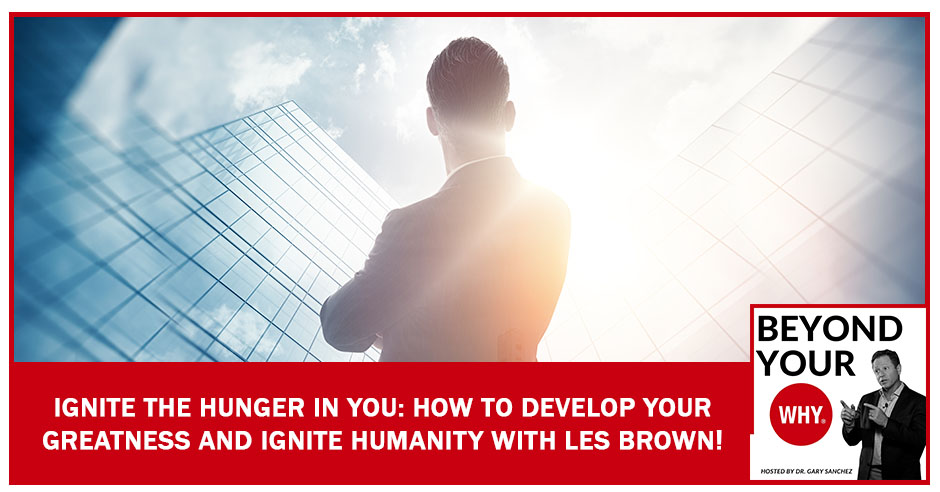
Every single one of us holds unfathomable greatness waiting to be unleashed. It all comes down to igniting the hunger within you to develop that greatness. Who better to teach you how than the Great, Les Brown himself! Les is one of the world’s most renowned motivational speakers and a sought-after coach, personality, and resource. He chats with Dr. Gary Sanchez for a deep dive on the inspiration of his latest book, Ignite the Hunger in You: How to Develop Your Greatness and Ignite Humanity. In their talk, Les discusses his anecdotes of people and events that helped ignite the hunger in him and how he aims to inspire personal growth to many more. Listen to their moving discussion on achieving that greatness and passing it forward to ignite humanity.
—
Watch the episode here:
Listen to the podcast here:
Ignite The Hunger In You: How To Develop Your Greatness And Ignite Humanity With Les Brown!
Welcome to the show, where we go beyond talking about your why and helping you discover and live your why. If you’re a regular reader, you know that every week we talk about 1 of the 9 whys and bring on somebody with that why so you can see how their why has played out in their life. We are going to do something different and something that we have never done before. Usually, what we do is we reveal our guest’s why before the interview, and then you get to hear their stories about how their why has played out in their life. We are going to do the reverse. The reason we’re doing that is so many of you already know our guest.
You have heard him for many years and experienced his presence and talks. I will be interviewing him. I want you to read and figure out what his why is from the stories that he tells. We will reveal his why online to see how you did. Read and try to decipher his why. We have a very special guest for you. I have been looking forward to interviewing this guest for many years. I have been trying to get him on the show but things didn’t work out at certain times.
For a man who needs little to no introduction as one of the world’s most renowned motivational speakers, and one of the most highly sought-after resources in business and professional circles for Fortune 500 CEOs, small business owners, nonprofits and community leaders looking to expand opportunity. His charisma, warmth and humor have transformed ordinary people into extraordinary achievers by using his own life and in-depth study of others’ challenges to build an understanding of what works, what doesn’t work and why.
He never tires from energizing people to meet the challenges of the world around them. He has a way of turning what he touches into gold. He is here to talk about the book he co-wrote with JB Owen called Ignite the Hunger in You: How to Develop Your Greatness and Ignite Humanity. Les Brown, welcome to the show.
Thank you very much. I appreciate the opportunity to be here and spend some time with you. I want to congratulate you on the work you’re doing, helping people to discover their why, and giving enlightenment on what can help to sustain people in very challenging times. Nietzsche said, “If you know the why for living, you can endure almost anyhow.”
As we are going through this pandemic, we felt that it was about to be something of the past, and now there’s a new one out there. People need something that can sustain them. Their why will be their rod and staff to comfort them, to give them the wherewithal, the perseverance, and the courage to keep moving forward and do the things that they are called to do. What you’re doing and the work that you have is a calling. It’s needed now more than ever before in this place where we are.
Thank you, Les. I appreciate that. There are very few readers who don’t know you or your story, but for those that don’t, could you take us back in your life? Where were you born? What was it like when you grew up? How did you transition from where you were to where you are now, speaking all over the world to millions of people? Take us through the quick version of Les Brown’s life.
We learn from our conversations, observations, experiences, and circumstances. Click To TweetI’ll give you the Reader’s Digest version. I was born in a poor section of Miami, Florida called Liberty City, with a twin brother. We were born in an abandoned building on a floor. We were taken in as foster kids by Mamie Brown. I feel like Abraham Lincoln who said, “All that I have and all that I ever hoped to be, I owe to my mother.” I constantly say that God took me out of my biological mother’s womb and placed me in the heart of my adopted mother. I saw a picture of my birth mother and father, and connected with the birth family that I had no idea. I’m in Atlanta and they live in Gainesville, Georgia, and here I am an hour away. I always felt a connection with Atlanta.
I know the moment that my birth mother, Dorothy Rucker, came to see me. I remember I was on a book tour and this lady was watching me very intensely. It was her and a guy. She came forward and said, “Hold your hand out, son.” I held my hand out and she put a picture, closed my hand and walked away. I put the picture in my pocket and then something said, “Take it out.” I looked at it and it was a picture of my brother and me. I said, “Lady, where did you get this from?” She just turned around, waved and kept walking. That was a brief moment, and then here we are. My son did a search. He went on to find and locate my birth family. It has been a process. I’m just now discovering my roots.
What has got me here? I always say, “I’ve got a new narrative.” My birth mother gave me life. My adopted mother taught me how to live life. When I was in the 5th grade, I was labeled educable mentally retarded. I was put back from the 5th grade to the 4th grade, and failed again when I was in the 8th grade. I had a high school teacher like you in my junior year. He’s very much like your personality. He was the kind of person who always look for the good and bring out the best in people. That’s who you are and how you show up.
He said, “Young man, go to the board and work this problem out for me.” I said, “Sir, I can’t do that.” He said, “Why not?” I said, “I’m not one of your students.” He said, “Do what I’m asking you to do anyhow.” The other students started laughing and saying, “He’s Leslie. He’s got a twin brother, Wesley. Wesley is smart. He’s DT.” He asked, “What’s DT?” “He’s the Dumb Twin.” I said, “I am, sir.” As they laughed at me, he came from behind his desk and looked at me. He said, “Don’t you ever say that again. Someone’s opinion of you does not have to become your reality. Do you hear me?” I said, “Yes, sir.”
The program that you host does something for people. How people live their lives is a result of the story they believe about themselves. What you do in promoting people discovering their why, you distract, dispute and inspire. You distract them from their current self-explanatory style as psychologists would call. Through your guests and conversations, you dismantle their belief system on how they see themselves and how they are showing up in life. You give them the courage to ignite a spirit of becoming an active force in their lives, to take their lives in another direction, to live a life that has meaning and purpose, and a life that will outlive them. Thank you for how you show up.
Thank you. When you were in high school, you had a label. How did you remove that label from yourself? How long did that take? What was that like for you?
It’s an ongoing process. Even now, I don’t think that you just have a moment, and you’re able to disrupt the things that you have embraced about yourself. As you are aware, we learn from conversations, observations, experiences and circumstances that we have. I came along during a time when they had signs on Miami Beach, “Jews, dogs and coloreds, not allowed.” There were places on Miami Beach where I couldn’t go that a dog could go. That’s a dominant culture that’s designed to destroy a person’s sense of self.
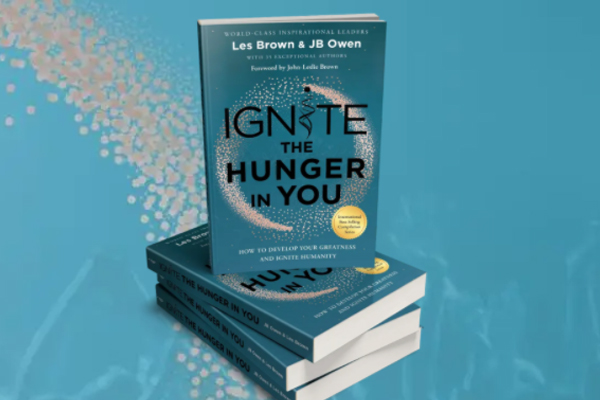
That’s an ongoing process. What I learned from going to work with my mother, and she worked for wealthy families on Miami Beach is what you listen to, you turn into. She worked for this wealthy family, the Swiderski family. Mr. Swiderski, I had to clean his office. He listened to motivational messages regularly. Zig Ziglar, “If you give enough people what they want, they will give you what you want.” Earl Nightingale, “You don’t get in life what you want. You get in life what you are.” Dr. Norman Vincent Peale, “You have something special. Don’t allow negative thoughts to dominate your life. You must think positively.” By listening to those messages regularly, unbeknownst to me, it was interrupting my vision of myself. It gave me a vision of myself beyond my mental conditioning and circumstances. It created a hunger for more and to live a greater life outside of what society said that was available to me.
As you speak around the world and meet people that have transformed their lives, what part does personal growth play in the changes that you have seen in people around the world?
Personal growth is everything. There’s a quote that Bishop TD Jakes says, “Lord, don’t let my talents take me where my character can’t keep me.” It’s self-awareness, knowing who you are, and being willing to work on yourself continuously. That discovery process empowers you because life is full of disruptions. Things are going to happen that you never saw coming as what happened with the pandemic. We never saw this coming. It’s to be able to define yourself and don’t allow the disruptions of life and the things that happen to you to disrupt how you feel about yourself and how you see life.
There’s something that LC Robinson said, “Things may happen around you, and things may happen to you but the only things that count are the things that happen in you.” It’s being anchored in a mindset of mental resolve that, “This will not define me. It will refine me but it’s not going to define me.” I’m looking at this from the perspective of not, “Why did this happen to me?” but from the perspective of, “What do I do with this? Now the power is in my hands. How am I going to handle this?”
The self-awareness and the ongoing process of working on yourself are meaningful. Abraham Lincoln said, “If I had six hours to chop a tree down, I’ll spend four hours sharpening my ax.” That’s what people have to do. The divorce rate is up 40%. The suicide rate has increased dramatically. Unexplained violence is taking place all over the country. Millions of people have been told, “You don’t have to come to work. You can do it from home.” They then say, “It’s safe now. You can come to work.” People say, “I don’t know if I want to do that anymore,” because they had time to rethink their lives.
We’re going through a place where people are reflecting and making decisions. We make decisions and our decisions make us. That’s different from what we have been able to see in the past. We have a culture that trains and educates people to be employees. Now, there are people saying, “I want to be my own boss, control my destiny, and live life on my terms.” This place where we are is very special.
That’s a good way to put it. Let’s keep going. You are now a young boy, and you have learned about personal growth. How did that translate into the changes that you made in your life? How did that take place?
Define yourself and don't allow the disruptions of life and the things that happen to you to disrupt how you feel about yourself and how you see life. Click To TweetWhat it caused me to do is to continue to pursue listening to messages that would empower me and inspire me, that expand my vision of what’s possible in my life in spite of being in a culture that demonizes you, works to destroy your sense of self, and dismiss you. It helped to fortify my drive and hunger to want to live a larger life beyond my mental conditioning, and the circumstances where I found myself. It’s that process and I’m still engaged in it. I believe you’re never too old to learn and you’re never too young to teach. I’m always learning and studying.
I left on my telephone a message for people who call me. There are people who call to hear what the message will be and it’s, “Most people have dreams and goals that die between two thieves, regret of the past and fear of the future.” You have a gift. Don’t let the regrets of the past, the mistakes that you have made in the past, the things that you have gone through, the fear of failure, and the fear of what’s going on rob you of why you were here and the work that you are supposed to do.
What were you like in high school? Where did that take you in your life to get into speaking? You have been speaking for how many years?
Fifty-two years. That’s before you were born. I thought of Dr. Martin Luther King Jr, Abbott, Malcolm X, and Billy Graham speaking to people in a big stadium. I was fascinated with their oratorical skills. My high school teacher, Mr. LeRoy Washington, was a Speech and Drama teacher and he was awesome, “You have something special. You have greatness in you. You have the ability to do more than you can even begin to imagine. You can make your school proud. Booker T Washington High School is not the largest but the best. You can make your family proud.”
I remember following him after school after he gave a speech and I said, “Mr. Washington, I heard your speech.” He said, “Aren’t you in the eleventh grade? I said, “Yes, sir.” “That was for the seniors.” I said, “I know but I heard your voice and I felt like you were talking to me. I came and stood in the back and listened. You said that we have something special and great in us. Do I have greatness in me?” He said, “Yes.” I say, “How do you explain the fact that I have to go to summer school every year, that I have been labeled educable mentally retarded, and my twin brother gets As and Bs. I have never gotten that. He has been on the honor roll. That has never happened for me.”
He said, “Mr. Brown, your grades don’t determine who you are. It just means that you have to work harder.” When he turned to walk away, I said, “Sir, I want to make my mother proud. I want to buy my mother a home. You said that if one person heard you that you’re being brought here from Stuart, Florida to Miami in Liberty City, you being brought here would not have been in vain.” He said, “Yes.” I said, “I’m the one, sir. I heard you. I’m going to use what you said.” He said, “It’s possible, young man.” He turned to walk away.
I said, “Don’t forget me. My name is Leslie Brown. I’m Mamie’s boy. One day, you’re going to hear my name. I’m the one. You touched me. When you spoke, you spoke to my heart.” That journey and that transformative experience created an opening in my mind that it was possible, that I didn’t have to die on the streets of Liberty City in Overtown in a violent and drug-infested poverty area. I can see the world before I leave the world, and that I can make some choices that will liberate me to become a person of substance and live a life of impact and live a life that’s counted.

Do you have any idea of how many speeches and presentations you have given?
No. I gave a speech that a lot of people love called It’s Not Over Until You Win in the Georgia Dome, which no longer exists. It was before 80,000 people. I don’t even remember giving the speech because I was so afraid. I went to the bathroom about 6 to 7 times. They had to get me out of there. I said, “Have you looked out there?” No, I don’t. I have been doing it for so long. I enjoy doing it virtually now. We have gone from brick-and-mortar to click-and-order. I’m training people how to take their story, knowledge, and skills, and how to train others and do it virtually in front of the computer like how we’re speaking now.
I do miss speaking on stage but not that much. I enjoy speaking in front of the computer because I know how to connect with people in front of them or in front of the computer. That’s what I now specialize in. I don’t have to get on an airplane and fly from city to city or country to country, and be able to create an experience. Oliver Wendell Holmes said, “Once a man’s mind has been expanded with an idea of concept or experience, it can never be satisfied to going back to where it was.”
I have listened to many of your speeches and worked out many times listening to you. I am enthralled with the way you tell stories and speak. How did you learn to do that? When did you learn to do that? What is it that you’re actually doing so that I know what it is?
Let me say how I learned. I had a coach. Mike Williams wrote a book called The Road to Your Best Stuff. He has an addition to that, The Road to Your Best Stuff 2.0. I saw him speak and I admired his style of speaking, how he had the audience on the edge of their seats, and how to have them laughing and the next moment crying. I went to him and said, “Can you teach me how to do that?” He said, “I could teach you how to do better than that.” That’s how I got here. He’s still my coach to this day. The other thing is that when you love something and see it as your calling, a job is what you get paid for. A calling is what you’re made for.
I talked to a young man and I said, “What are you doing?” He told me that he was in IT. I asked him, “What are you living to do?” He thought for a moment and said, “I love to help people.” I said, “Do you find yourself doing that in what you are now doing?” He said, “Not to the extent that I want.” I said, “You ought to create that for yourself before you leave here. We don’t know how much time we have left.” He said, “I got to pay the bills.” I said, “We’ll figure out how you can pay the bills and build a life that’s you. Life is short and unpredictable.”
If there’s anything we learned from this pandemic, people are rethinking their lives. Life is fragile. Over 700,000 people are out of here. You owe it to yourself and your family to do something that’s you and that you love so much that you do it for nothing, but you do it so well that people will pay you to do it. I said, “That’s how I got into this.” I volunteered. I gave free speeches for a long time to learn how to do what I was doing. I invested in myself. Warren Buffett said, “The most important investment you can make is in yourself.” Here’s a guy who has billions of dollars in real estate and the stock market but he said, “In yourself.”
Most people have dreams and goals that die between two thieves - regret of the past and fear of the future. Click To TweetHe said, “The most important tool that you need if you’re going to build a business or be a voice of influence who could make an impact on the planet, you got to be a communicator. If you can’t communicate, that is like being in a dark room with a beautiful woman and wink, nothing happens.” Steve Jobs said, “The storyteller is the most powerful person in the world.” It sets the agenda. The storyteller creates the vision, determines how people see themselves, and creates the thirst for what you want to do.
When I came into the industry, for the most part, everybody was giving information from Think and Grow Rich by Napoleon Hill. I believe that if the information could change people, everybody would be skinny, rich and happy. Studies indicate that when you give information, that impacts two areas of the brain. When you provide a story, and I use stories, that impact five areas of the brain. That expands a person’s vision of themselves, touch their hearts because we are emotional people, and ignite their courage in them to do something different with their lives.
I was going to ask you this question. Do you consider yourself a speaker, a motivator, a storyteller, or all of those? How would you define if you could what you do?
I aspire to inspire until I expire. I told my kids, “If they told you that I die, tell them don’t embalm me for three days, and then sneak down to the bog and put a microphone in my hand. If I don’t grab it and say, ‘You got to be hungry,’ you say, ‘Dad’s gone now.’” I’m Mrs. Mamie Brown’s baby boy but I got a new narrative. I sing this song, “I’ve got two mothers and I’m not ashamed. I’ve got two mothers and I love them just the same.”
What’s the secret to telling a good story? That is your specialty, for sure. I listened to you waiting for the story. I have even heard this story before and I still enjoy the story more the 2nd, 3rd, 4th or 5th time. How do you do that?
You experience the story continuously. Ladies and gentlemen, I was on a program with a gentleman who has committed his life to helping people to change their lives. His name is Gary, and his name in itself conjures some thoughts about this thing called life. Number one, you got to have a goal-centered life. People who aim at nothing in life end up hitting nothing dead on the head. He has a goal of helping people to discover their why. When the tough times come, and they’re going to come, their why and reason for being will be their rod and staff to comfort them.
The A in his name is for accountability partners. You got to have some people around you that are going in your direction and people that have goals and dreams that they’re working on and will hold you accountable. People who have accountability partners have a 40% greater chance of reaching their goals than people who don’t. The next thing about his name is the R stands for Relationships. You don’t want to do this thing called life by yourself.

As the Academy Award-Winner Sidney Poitier said, “When you go for a walk with someone, something happens. Either you adjust to their pace or they adjust to your pace.” Whose pace have you adjusted to? Look at the relationships in your life. As Jim Rohn said, “Ask yourself the question, ‘What am I becoming because of this relationship?’” Am I growing? Am I becoming a better person and a better father? Am I growing mentally, spiritually, and financially? What kind of impact that to some people, if you never saw again, it would be too soon?
The Y in his name stands for Yes. Eighty-five percent of people look at their goals and dreams that will allow them to live a different kind of life. They say no to themselves because they have been conditioned to suffer from the possibility-blindness. For Gary, the reason that he does this program is to inspire you to say yes, to encourage you to believe in the possibilities that you can do it, and know that you will have to fail your way through success but you have it within you. Say yes to your dream, to your life, and to a brighter future. I call it the Gary factor. He’s a bad boy up in here.
I know you used my name but take us through what you did there so that we can understand how you did that. What was that? You used my name but what were you thinking about as you were off the cuff?
The speakers speak. When you get coaching on how to do anything, it creates and develops your intuitive skill and gift that’s lying dormant within you. It takes you to a place in yourself where most people who won’t put in the time, focus and effort will never discover that part of themselves. It’s lying there dormant. I’ve got three brothers. They don’t live like I live because they haven’t put in the focus, time, and effort to develop this part of themselves.
I was shocked to find out that my birth mother was a motivational speaker. My grandmother, Beulah Rucker, have the Beulah Rucker Museum in Gainesville, Georgia. She was a motivational speaker but I didn’t know them but because I put in the time, I was willing to invest in myself, because I saw something that caught my eye like this program that you are doing. You could have done a lot of programs but there was something about this and knowing your why.
I think about Man’s Search for Meaning by Viktor Frankl. He talked about the Jews that survived the inexpressible cruelties of slavery. Either they had some loved one that they were determined to see, or they had some cause that they believed in or some spiritual commitment and level of reason that fortified their resolve to survive. When we find something that resonates with who we are and something that we love, it’s just you.
When I think about speaking I have the, “Can’t help it.” I can’t help it. I talk in my sleep. You do this problem. You have a lot of other choices. It’s you. Most people die an unlived life. Most people who die at age 25, don’t get better at 65. They are living a misplaced life that’s not them just to pay the bills and survive. What it takes to survive and what it takes to thrive are two different things.
When you get coaching on how to do anything, it creates and develops your intuitive skill and gift that’s lying dormant within you. Click To TweetYou have said, “I’m getting out of line. I’m not following the followers. I want to do something different with my life. I want my life to count. I want to make an impact.” I believe what Horace Mann said, “We should be ashamed to die until we’ve made some major contribution to humankind.” I’m going to have a program that will allow me to make a major contribution. You have studied. You are willing to learn. If you’re not willing to learn, no one can help you. If you’re willing to learn, no one can stop you.
I’m with you. I did thousands of why discoveries for free before I started to see what I see now.
You can see things that other people can’t see.
When you talk about connecting, you said, “I can connect to people, whether it’s on stage, on the phone, or on Zoom online.” How do you connect to people? What is that secret you have? I don’t know what it is but I feel it. How do you do that?
You do know what it is. I speak from my heart. Stories touch the heart. Information fills the brain. When you have a heart-centered message, people experience that. You create an experience. Words that are spoken from the heart enter the heart. Oliver Wendell Holmes said, “Once a man or woman’s mind has been expanded with an idea, concept or experience, it can never be satisfied to going back to where it was.” When you tell a story about something that touched your heart, something that you’ve experienced, or something that you saw or heard, get them out. I heard a young man say on the elevator. He looked at a lady that was being wheeled in a wheelchair and said to her, “Happy Thanksgiving.”
He didn’t know her or me. He was pushing the wheelchair to a gate. That touched me. It’s a random act of kindness. He could have stood there silently like the rest of us but he said, “Have a nice Thanksgiving.” She smiled. I’m reminded of a man who jumped off the San Francisco Bridge but he survived. They asked him, “Why did you want to kill yourself?” He said, “I didn’t want to kill myself but I was going through so much pain in life. I went out for a walk and said that if anybody looks at me and says something kind or smiles, I won’t kill myself. No one did. The moment I let go, I knew I had made a mistake.”
Had that gentleman who stood by me had seen that young guy that day, he would have seen a smile and said, “It’s good to see you.” When he asked the lady how her Thanksgiving was going to be, I chimed in too. We have to create not just viruses of fear but also viruses of love, peace and harmony where we recognize our humanity, connectedness and being willing to, “Reach out and touch somebody’s hand. Make the world a better place if you can.”

I have heard you say that many times but tell us about being hungry, “You got to be hungry.” Your book is about that.
Ignite the Hunger is about people who have gone through things, people who had major setbacks, abused, denied, stepped on, and treated unfairly. It’s about the power of the human spirit. Something happens at a defining moment that they came to know that what they were going through, they would get through. In each chapter and each author, when people read the book, it’s not just a read. It’s an experience and it’s needed now more than ever before because people are going through a tough time. I have a son who is bipolar and has schizophrenia. He’s out of control. He hasn’t taken this medication. That’s a challenging experience.
You realize that there are some things you can control and can’t control. There are some people, even your grown children. You have to love from a distance. I have received the first Cancer Centers’ Award of Excellence of Perseverance. I received that award as if life says, “Mr. Perseverance, here’s something that you can’t control. How are you going to handle this? You motivate people around the world but you can’t control and make your son take his medication.” Has it been challenging? Yes, absolutely. I don’t care how old your children become. They’re still your children. You have to learn how to handle that, how to process that, and how to discipline and manage your thinking around that.
Shakespeare said, “Nothing is neither good nor bad but thinking makes it so.” I had to put myself back as an observer. I don’t get to weigh in on telling a grown person, “You need to do this.” If they choose not to do it, there’s nothing I can do about that. What I can do so that I don’t deplete the white blood cells that are available to protect my immune system and continue to beat stage-4 cancer is to find a sense of peace within and say, “Lord, grant me the serenity to accept the things that I cannot change, the courage to change the things that I can, I can change how I respond to this, and the wisdom to know the difference as opposed to being stressed out of my mind.” That does not serve me and that does not help him.
Does that create a hunger in you?
Yes. We are going to experience challenges in life. My favorite book says, “Think it not strange that you have faced the fiery furnaces of this world.” You will, not might. You will have tribulations. Forrest Gump had a point, “Life is like a box of chocolates. You never know what you’re going to get.” What we know is that we have built-in power, authority, and dominion to handle whatever life throws at us. I have an affirmation that I read every morning, “Lord, whatever I face today, together, you and I can handle it.”
All things work together for good for those who love God and for those who are called according to his purpose. They say, “All things will be good or all things will feel good but it will work together for good.” I say, “Lord, help me to hold on so I can find the good.” I feel like Mother Teresa who said, “Lord, I know you know how much I can bear. I just wish you didn’t have so much confidence in me.”
Once a man’s or a woman's mind has been expanded with an idea, a concept, or an experience, it can never be satisfied to going back to where it was. Click To TweetWhat is next for you? You’ve got your book coming out. You’re working with people to help them tell their stories online and in person. You’re very young. For those of you that can’t see Les and you’re just reading, he looks about 45 years old. This 77, I’m not sure if I’m buying that. You’ve got a lot left to give.
It’s coaching people and teaching them what I have learned. Being on the planet for 77 years, I feel like I served at the Lord’s Supper. I used to think people in their 40s were old, then I woke up one morning and said, “I’m 77. Who does this?” I would like people to reach out to me at CoachMeLesBrown.com and also go to HungryForGreatness.org. It’s teaching people how to live a life of meaning and significance. Your life is a gift and how to develop that gift. We have talents, abilities, skills and ideas in us to help people rob the cemetery of their gifts, live full and die empty. That’s what I want to do. I don’t want to work with everybody, just a few people.
They say I have the Midas touch because I don’t touch everything. It’s about working with people who want to invest in themselves and bring out the greatness in them in 2022. People have a story that they want to tell you. Maya Angelou said, “There’s nothing as painful as an untold story buried in your soul.” Help people to tell that story because that story that you’re sitting on, somebody is waiting on. Help them get it out and be able to make an impact, to be a voice of influence, to promote their business or to help them live a life that they can feel proud of. That’s what I’m about. That’s where my focus is, and that keeps me young.
When you talked about telling a story, you said that you’ve got to speak from the heart. How do you teach people to speak from the heart? What does that mean?
I want to ask you a question. When you were coming up, there’s somebody you saw when you’re around 5 or 6 that you admire and wanted to be like. They made you feel safe and good about yourself, who is that person?
It would have to be my dad.
What’s your father’s name?

Robert or Bob.
What’s the first quality that you liked about Bob and admired about him?
I’m going to say resolve.
Give me an example.
What he wanted to do, he would stick with it until he accomplished it.
“Ladies and gentlemen, my name is Gary. We’re living in a time where lives have been disrupted. I want to share with you my hero, Bob. Bob to me, stands for Believe in yourself, being Open to the possibilities, and be Bold about life. My father is a man that had deep resolve. If there’s something that he wanted to do, he set out to do it. When I think about me, I realize how much he influenced me. I remember as a kid as I watched him, he was my hero. We had Batman, Superman, and everybody else but my hero’s name is Bob. He’s a man’s man and I want to be like him.”
That’s something from your heart. That’s not something you read in Think and Grow Rich. When you talk about Bob, you went to your heart, you got still, you had that faith. Who is that person? Bob is the person that’s special to you. When you tell a story from your heart about Bob and the other things that you learn from him, people can tell if it’s from your head or some script that you had memorized, and you’re coming in to do an information dump. They can tell if this is a person that means something to you and the story that you’re sharing. They can tell and feel it. People will feel your energy. That’s how I teach people to speak. You have to have a heart-centered speech. It’s something that’s in your heart.
It’s very important to have people around you that will believe in you until your belief kicks in. Click To TweetI think about myself when I speak at events. There’s a bit of fear in speaking from the heart because it gets too emotional and uncomfortable. It gets to where you almost feel like you’re going to have tears or something like that. It’s a fear to go there.
You pull yourself back because the microphone on the stage is not a place for therapy. I have made the mistake of doing that and I learned. You always want to know where you can go with a story. It’s not about you. It’s about the audience. The audience is asking three questions when you give a speech, “Who are you, Gary? What do you have for me? Why should I care?”
When you give a speech from that place, “I’m sharing with you about my father, Bob and his resolve. Do you know what I know? For us to make it in and out of the pandemic, it requires a level of mental resolve and faith. Faith not tested can’t be trusted. I know that you must believe in yourself. My father was an example of that. Here’s what I know. As you look at yourself and at that man or woman in the mirror when you get up in the morning, I want you to know you’ve got greatness looking back at you. I want you to know that when you believe in yourself, when you’re open to the possibilities, and when you believe that I have the faith that I’m going to make it no matter what I’m saying to you, ‘Life is on your side.’ Angels are activated and saying, ‘We got to go down there and help this one here. They got that energy of Bob. This one here won’t stop.’”
I noticed that you add a lot of humor when you speak.
When people laugh, that shuts the mind down. I use laughter and teach my speakers how to use laughter so that when people laugh, their minds close down but their hearts open up. You then come back with a powerful statement. When you get in the heart, they can’t get you out of there. Now you can work on it. Humor is very important. It’s a lubricant that allows you to handle this thing called life. It’s medicine for the soul.
This crossed my mind when you were talking earlier, and I would love to know what this felt like. You have spoken at many different size events, right now to 80,000 people. What was that like? How was it different to speak in front of 80,000 people? Was it any different?
It was very different. It was frightening but you allow your fear to drive you. It’s very important to have somebody around you who believes in you until your belief kicks in. I was frightened up to the moment they handed me the microphone. My mentor, Mike Williams said, “Brownie, you got this. I said, “Do I, Mike?” “Everything that you have gone through has prepared you for this, Brownie. Make your mother proud. She will get a chance to see this. Make her proud today.” “Thank you, Mike. Give me the microphone, sir.”

It’s very important to have people around you that will believe in you until your belief kicks in. Fortunately, for me, Mike Williams spoke to me. I believe him and I went out there. If people watch Les Brown speaking in the Georgia Dome, they will say, “He has made me Brown’s boy. He’s got it good up in here.” I don’t remember giving the speech. I have only watched about 5 or 10 minutes of it because I’m very critical of myself. People say that it has been viewed by millions of people around the world and it has changed their lives.
When you are getting ready to go on stage and speak to an audience, how do you prepare yourself?
I have a needs assessment that I sent out to clients. That’s what separates me from other speakers. I train speakers and say to them, “Don’t let what you want to say get in the way of what your audience needs to hear.” I ask them a series of questions, “Who have you had in the past? What worked? What did not work? What’s the unspoken conversation? What is it that you want me to provide so that when they leave here, it will make you look good? They will feel better about themselves. They will be motivated and inspired to take their performance to the next level.”
I conduct communications intelligence, asking them questions, and then I incorporate that in the experience that I create on the stage, having in there the things they told me that they want and the reason they brought me in. It’s not just a presentation to entertain them but to empower them, to impact their bottom line, to increase their sales, and to cause them to say to themselves, “I can do more, “Simba, you are more than that which you have become.” They know that to be so.
I hear you say this word a lot and it’s making me think. You talk a lot about the experience. It’s not the presentation or the story. It’s the experience. Tell us what that means to you.
You don’t want to be just a presenter because it goes in one ear and out of the other. You want to experience what you’re saying to them. Each time you tell the story, you want to tell it with the same passion, power and energy. That gets fresh like you’re telling it for the first time. There are people who have heard me tell the story about how I became a disc jockey. They brought me in and said, “Don’t forget to tell the story of how you became a disc jockey.” Why? It’s because they love that story. It took them to a place in themselves that they could not go by themselves. They want to hear that story again, so I tell that story each time like I’m telling it for the first time.
I’m experiencing rejection. I’m experiencing walking back and forth, looking at Rockin’ Roger who was drinking and could not complete his show. I’m saying, “Drink, Rock, drink.” I go there with the power of telling the story and experiencing the story. You cause the audience to take imaginative leaps. They come into the story. You created an opening so that your story becomes their story. You take them on the journey to another place within themselves that they have not figured out how to get there. The story provides the key to unlock and release what Elizabeth Browning would say, “The imprisoned splendor.” I encourage people to study. I study and read constantly even now.
Don’t let what you want to say get in the way of what your audience needs to hear. Click To TweetHave you got time to tell us that story?
No. I can’t go there. Let them go to the web. I’m going to send them the story because I have to get into that mindset.
I have heard it many times and I love it.
Reach out to me at CoachMeLesBrown.com. I will send them a motivational message that will have that story. They can see it in action and love it.
I love this because you have shared with us what’s happening behind the scenes of what we’re experiencing upfront, which is super helpful for those of us that want to make a bigger impact and connect at a deeper and heartfelt level. It sounds good to say those things, but until we know what it is, how to do it, and see an example of it, it’s just another thing that we’re trying to do that we don’t know how to do.
It’s caring about the audience. Who you are behind the words is far more important than the words that you speak. Zig Ziglar said for years, “If you give enough people what they want, they will give you what you want.” That to me meant that if you give people your best, if you give from your heart, if you hold yourself to a higher standard, if you create an unforgettable experience and have people know that you care about them and you’re not treating them like a transaction, Theodore Roosevelt said, “People don’t care how much you know until they know how much you care,” they will give you what you want, referrals and business. You will have an incredible time in eCommerce in this time where we’ve gone from brick-and-mortar to click-and-order.
Les, if people want to connect with you, they want coaching from you and want more, what’s the best way for them to connect with you and buy your book? How can they do that?
They can get the book on Amazon. That’s number one. If they want one-on-one coaching, they can go to CoachMeLesBrown.com. In our training program, we have HungryForGreatness.org. They can go there and we have an ongoing process and a holistic approach of helping people get out of their heads and get into their greatness.
I have been looking forward to this for a long time. I’m so glad this finally came about because I wanted to connect. I know so many of your stories but I look forward to listening to them every single time. Thank you so much for being here. It has been a pleasure having you on.
Thank you for having me. I still feel a special connection with you. You’re my brother from another mother.
Thanks, Les.
I’ll give you a virtual hug.
—
It’s time for our last segment, and that is the Guess Their WHY. I want to pick somebody that everybody is familiar with from the Olympics, and that would be Simone Biles. If you’re a member, she lost her confidence. She did her routine and lost confidence in the middle of the air, and came down luckily on her feet. From then on, she decided she could not participate in the Olympics because something wasn’t right in her head. What do you think Simone Biles’ why is? I’ll tell you what it is. Her why is trust. It’s to create relationships based upon trust, to be the trusted source, and to be the one that others can count on.
People with the why of trust educate or develop themselves to extremely high levels quite often so that they can be the trusted source so that they can be the expert, so they can be the one. In her case, she lost trust in herself that she could find herself in the middle of the air and come down safely. I believe that her why is to create relationships based on trust. What do you think her why is? Let us know. If you have an opportunity, let us know what you think her why is.
I want to thank you for reading. This has been an awesome episode. I loved having Les Brown here. He’s one of my idols as far as a speaker. If you have not yet discovered your why, we have a special for those of you that read Les Brown’s episode. Go to WHYInstitute.com/Les. You can take the WHY Discovery for free. You can discover your why for free in this episode only. If you love the Beyond Your WHY show, please don’t forget to subscribe and leave us a review and rating on whatever platform you are using. Thank you so much. I will see you and be with you next episode.
Important Links:
- Ignite the Hunger in You: How to Develop Your Greatness and Ignite Humanity
- The Road to Your Best Stuff
- The Road to Your Best Stuff 2.0
- Think and Grow Rich
- Man’s Search for Meaning
- CoachMeLesBrown.com
- HungryForGreatness.org
- Simone Biles
- WHYInstitute.com/Les
- LesBrown77@Gmail.com
- Celeste@CelesteJonson.com
- Amazon – Ignite the Hunger in You
About Les Brown
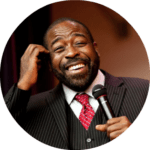 We’ve all been through a lot recently and for most of us, it’s been hard to catch our breath before something else comes along. The one thing I know is that we are all more than what we’ve been through- but it can be tough to realize that truth in the midst of chaos.
We’ve all been through a lot recently and for most of us, it’s been hard to catch our breath before something else comes along. The one thing I know is that we are all more than what we’ve been through- but it can be tough to realize that truth in the midst of chaos.
If you are looking for solutions to quiet the noise in your mind and focus on improving your life on every level, you need coaching… and you need a community.
I’ve created the Coach Me, Les Brown community to help transform and elevate the individual and collective consciousness of those who are serious about living a life of purpose and passion- while making profits!
If you are hungry to live out your dreams- both in and out of the pandemic, I invite you to join our community as we do a deep dive into the actionable solutions needed for you to win now and in the future.

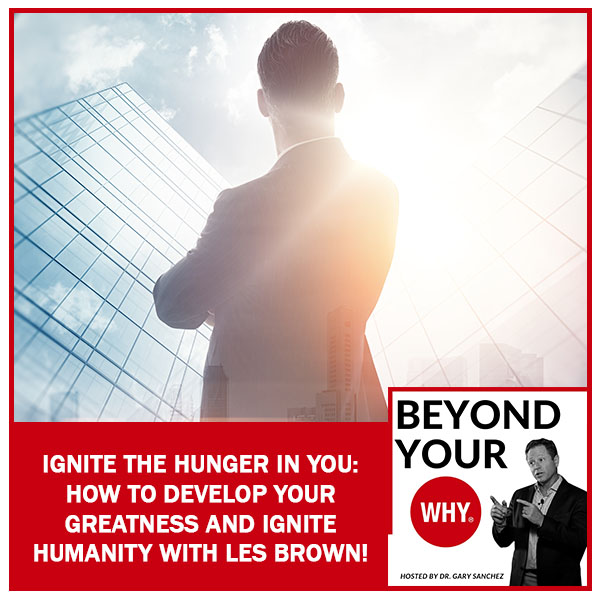
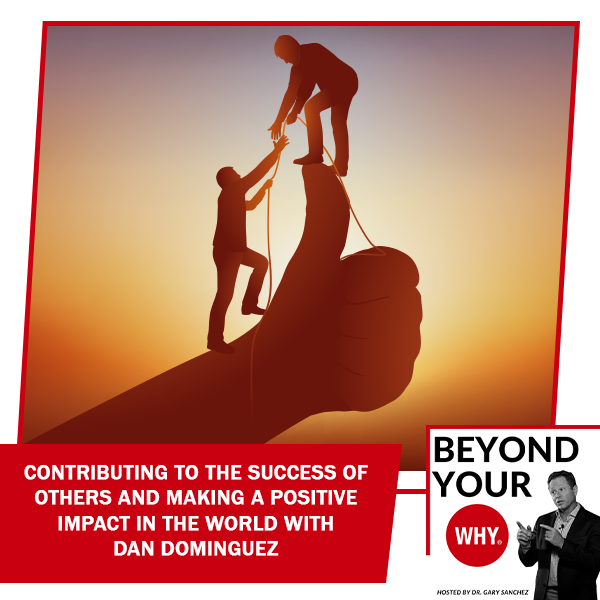
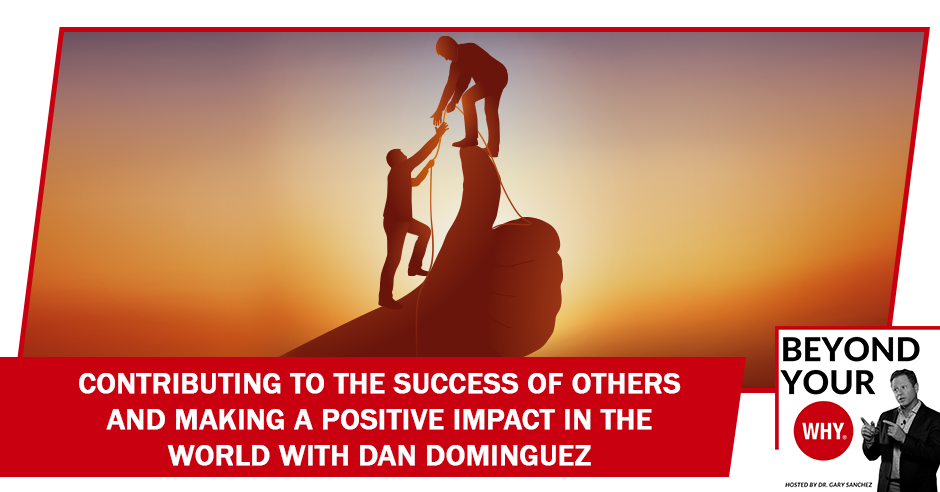

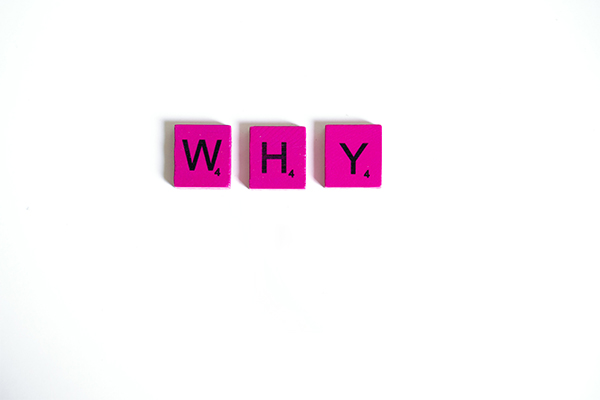

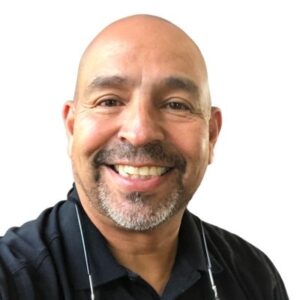 Dan Dominguez exists to positively impact the lives of others. HOW he does that is by challenging the status quo and looking at things from a different perspective. WHAT he brings is the ability to make sense of the complex and challenging to help others move forward faster. Dan’s diverse background as an academic scholar, college mascot, Army Ranger, sales leader, marathon runner, track and cross-country coach, and Rotarian allows him to connect easily with almost anyone and he does that as the Chief Growth officer at the WHY Institute.
Dan Dominguez exists to positively impact the lives of others. HOW he does that is by challenging the status quo and looking at things from a different perspective. WHAT he brings is the ability to make sense of the complex and challenging to help others move forward faster. Dan’s diverse background as an academic scholar, college mascot, Army Ranger, sales leader, marathon runner, track and cross-country coach, and Rotarian allows him to connect easily with almost anyone and he does that as the Chief Growth officer at the WHY Institute.